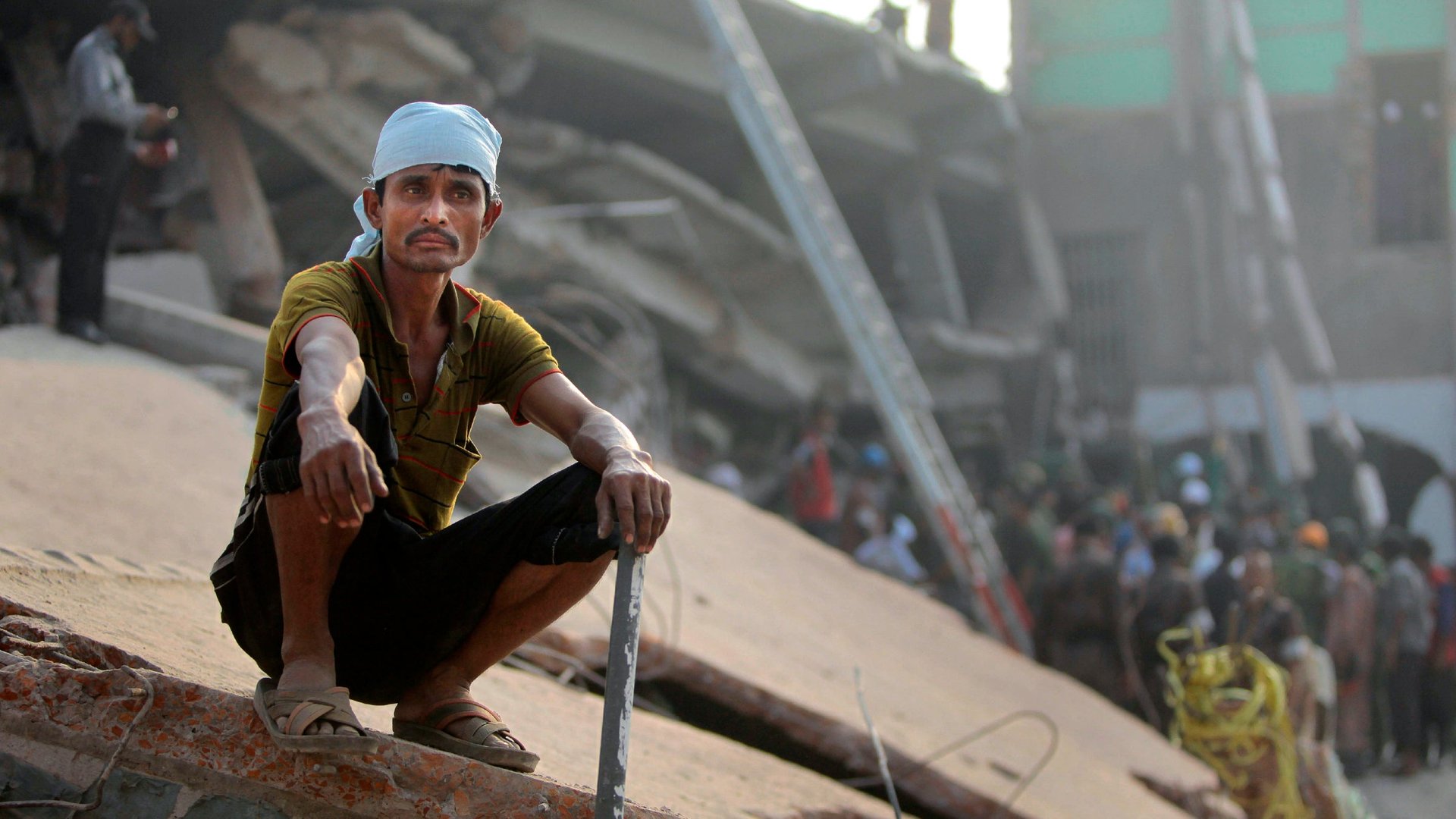Now is not the time for companies to leave—and other lessons from Bangladesh
In the immediate aftermath of a tragedy, the indictments and finger-pointing are generally followed quickly by promises of restitution, reform and better oversight.


In the immediate aftermath of a tragedy, the indictments and finger-pointing are generally followed quickly by promises of restitution, reform and better oversight.
These promises aren’t always kept—as evidenced by the collapse of Bangladesh’s Rana Plaza building last month, which killed more than 650 just five months after another Bangladeshi clothing factory caught fire, killing 112.
Still, it’s worth noting what is promised while the tragedy is fresh. Here’s a roundup of pledges and recommendations:
Manufacturers Must Watch Their Own
The days of hoping that the factory owners—or their organization, the Bangladesh Garment Manufacturers and Exporters Association—will police themselves are over, says Abu Ahmed, an economics professor at the University of Dhaka.
“We have lost all faith in the BGMEA,” he says.
There’s only one way it might be restored, says Mustafizur Rahman, the executive director of the Center for Policy Dialogue, a Dhaka-based think tank.
“Instead of trying to save a few factory owners who violate the rules, it should take care of its 4,000 factories and 2,500 entrepreneurs,” he said of the association. “The BGMEA should throw the violators out, instead of putting the sector as a whole at risk.”
The association’s president, Atiqul Islam, said his group does indeed plan to ramp up its oversight. It has asked all factory owners to submit structural design plans of their buildings, and has hired 10 additional engineers to review the plans, he said. “Many of the factories which have cracks remain closed because of fear of collapse,” he said. “Neither the owners nor the government are taking responsibility.”
The group also is focused on treating wounded workers and providing compensation to the victims, says Abdus Salam Murshedy, the president of the Exporters Association of Bangladesh and a former president of the BGMEA.
Next on the agenda, he said, is to sit down with the European Union and the United Nations’ International Labour Organization.
“Factory owners, the government, buyers—they all have to work together to overcome the problems and restore the country’s image,” he said. “If we fail, the economy and employment in general will suffer a lot.”
Government Must Step Up
In Bangladesh’s fractured and fragile democracy, few have faith in the government’s efficacy. But the recent tragedy offers an opportunity for the current administration to improve its reputation, says Ahmed, of Dhaka University. He said the government should sit down with the international garment companies who buy from the manufacturers and convince them that leaving the country would do more harm than good for low-income workers.
“Our whole economy is dependent on income from the apparel sector and remittances,” he said. “If either of the two falters, the entire economy will suffer serious damage.”
Ahmed also suggested that the government establish an independent regulator to oversee factories, with the power to cancel permits and licenses for violations.
But there are plenty of rules already on the books, says Bangladesh’s commerce secretary, Mahbub Ahmed. The issue is enforcement.
“We have been pursing various types of reform for a long time,” he said. “We’ve made the necessary amendments to the labor laws, and the parliament has passed a bill on the building code. Now we have to enforce those strictly.”
Instead of Fleeing, Buyers Should Stay and Help
Already, Disney has announced that it will no longer source merchandise from Bangladesh because of occupational safety issues, and many fear that other companies will pull out. But after years of profiting from Bangladeshi labor, now is not the time to leave, says Islam, of the BGMEA.
“For many years they have done business with us as a partner,” Islam said. “Instead of leaving, they should come forward and help us resolve the crisis.”
International garment companies should pass on some of the cost of worker safety to consumers, by raising prices, says Rahman, of the Center for Policy Dialogue. “Buyers also have a responsibility to help ensure better working conditions,” he said.
And Ahmed, of Dhaka University, recommended that the garment companies set up a watchdog organization to police conditions in the factories.
Labor Should Seize Momentum
Bangladesh’s growing labor movement has gathered steam in recent days, as tens of thousands took to the streets around the country to demand justice and call for the execution of those responsible for the building collapse
The workers want to see reform, said Nazma Akter, president of the Sammilita Garment Workers Federation, but they don’t want to scare off international companies. “We do not want buyers to leave the country,” Akter said. “At the same time, we do not want to die in the workplace. Buyers have to share the costs, so that workers are paid well and are also safe.”
The immediate demand is for adequate compensation to wounded workers and to the families of those killed, Akter said. But if the underlying problems aren’t addressed, she said, factory owners will face major labor upheavals and they’ll find themselves without workers.
“Nobody wants to die this way,” she said. “Life is precious to all of us.”